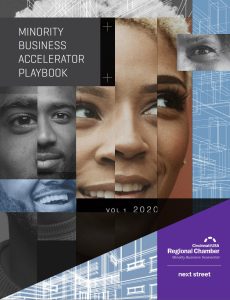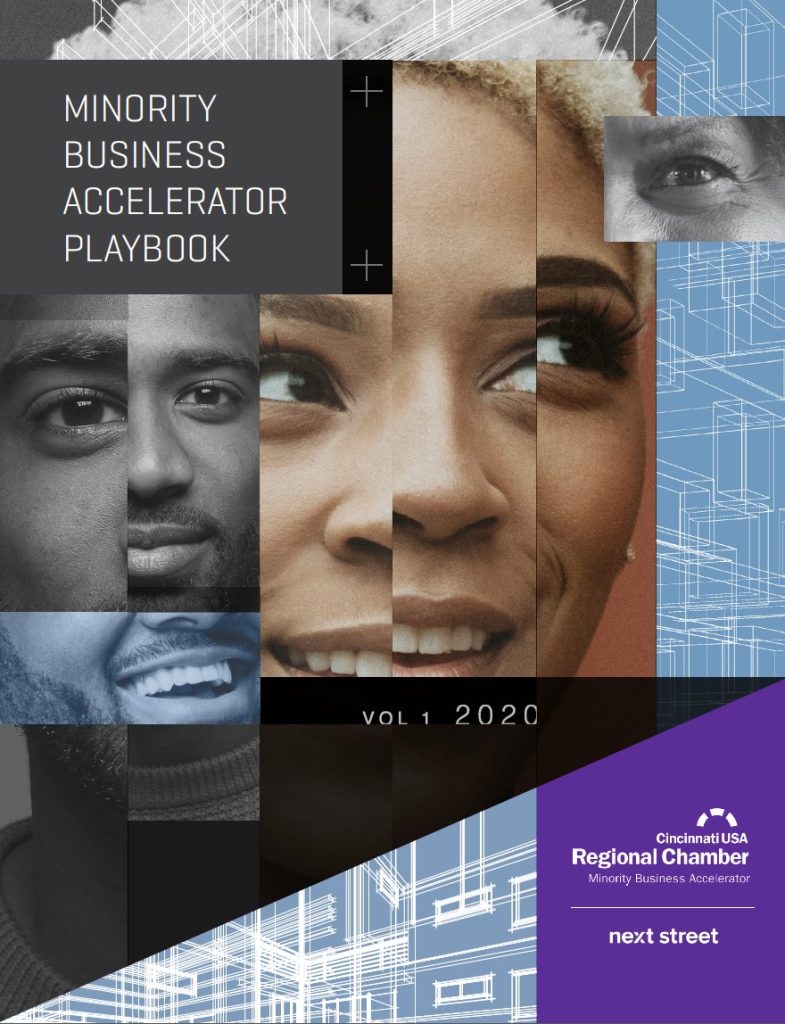Cheryl Magazine feature article
Like Ruth and Naomi in the Bible, De Asa Nichols and Darraugh Butler have vowed to not leave each other behind. Ruth tells Naomi, her Israelite mother-in-law, “Where you go I will go, and where you stay I will stay. Your people will be my people and your God my God.” This is a special story because it highlights the importance of loyalty and devotion. It also shows how being kind-hearted to others can bring you blessings in abundance.
When you watch through an altered lens of news and social media in recent times, you can find many positive Black female relationships that are an exception. We are grateful for strong and determined Black women who have deep-rooted issues and come from unique platforms but epitomize what healthy and wholesome relationships should look like. Women like Oprah Winfrey, Gayle King, Jada Pinkett Smith, and Queen Latifah as well as Taraji P. Henson and Mary J. Blige, have been great examples. The foundation of these wonderful Black women and their relationships with each other is like Ruth and Naomi – based on loyalty and devotion. Today, as friends and business partners, we want to share our own Ruth and Naomi story.
Darraugh Butler
I met De Asa Nichols in 1995 after assuming a role as the president of the Cincinnati Minority Supplier Development Council, an organization that fosters economic inclusion of minority businesses. During my tenure, De Asa came aboard as the executive director of the Cincinnati Chamber of Commerce Minority Business Mentor/Protege Program. De Asa and I hit it off immediately and because of our passion and realism became well-known as Black women business leaders in the region.
At the time, you could say, like Naomi, I was a matriarch and a forerunner in the diversity and inclusion arena. I had built a reputation for being an outspoken and formidable advocate for minority firms. In a male-dominated field, it was important to find Black women that would share and support my vision.
De Asa is a driven professional with extraordinary poise and presence. She brought years of expertise in public relations and minority business affairs. Like Ruth, I found her to be determined, hardworking, and kind and she became a trusted ally and business colleague. De Asa not only shared my vision but also had an unsurpassed desire for helping Black businesses succeed, that was equivalent to my own!
We have supported each other throughout the years and became change agents to uplift an economically faltering community. De Asa had a saying I love that epitomized our objective for creating opportunities: “Business is about contacts that lead to contracts and checks that clear!”
De Asa and I have worked together for 20+ years dealing with problems of diversity and inclusion. However, through many struggles, challenges, and tears, we broke down those barriers together. We have developed a strong connection and a lifelong friendship.
De Asa Nichols
I have known, admired, and respected Darraugh for nearly three decades. Upon meeting her in the workplace, I felt an instant connection to a “sista-sista,” an “everyday woman” of God whom I knew I could trust and be my authentic self with. Turns out my discernment was right.
Darraugh and I have continued our friendship and it has evolved in different ways over the years. After leaving the nonprofit sector, Darraugh went out on her own as an entrepreneur while I continued as an employee within corporations.
However, our roles were still intertwined as I oversaw supplier diversity strategy and Darraugh was now consulting. Fortunately, I was able to refer her company for business opportunities which she competitively won with companies where I was employed. I was living my motto: “Business is about contacts that lead to contracts and checks that clear!”
Over time our friendship has endured life-altering encounters including tragedy, marriage, divorce, a recession, and career transitions. One of those changes came in 2003 when Darraugh lost her 18-year-old son Brandon to gun violence. I remember going to Darraugh’s home to support her with my presence, praying with her, and offering words of hope during that painful time.
Now, we are working together as women business enterprise collaborators through our businesses, Darraugh Butler & Associates and Global Impact Group Solutions. As allies, we aim to redefine the model of what supplier diversity should be – authentic, valuable, diverse, equitable, inclusive, failproof, and profitable.
Our covenant to never leave each other behind makes our bond and friendship truly special.
Click here to subscribe to Cheryl Magazine.
Black Enterprise feature article

De Asa Brown often reminds minority entrepreneurs of the old sports adage: Every time you’re up to bat you might not get a hit but you have to keep swinging.
Brown, a 15-year diversity veteran and director of supplier diversity at Automatic Data Processing (ADP), one of the world’s largest business outsourcing solutions providers, believes all business starts with a conversation.
She wrote “Contacts That Lead To Contracts And Checks That Clear,” a list of 10 tips to help entrepreneurs best position their companies to gain business from major corporations. (For more on ADP’s supplier diversity procurement efforts, visit ADP.com.)
Brown offers a few select pointers that can develop into business-building opportunities:
1. Understand the company you are approaching.
2. Sell the value of your company to the appropriate audiences within the organization you are approaching. (Know that your pitch to procurement will be different from your pitch to the marketing department.)
“As an entrepreneur, you’re always selling your products and services through phone conversations, e-mails, networking, referrals, marketing materials, and Websites but it’s key to know your target audience. Entrepreneurs try to sell their whole company too quickly to the wrong audience. For example, if you’re talking to someone like me that’s in a procurement group, understand the key objective of any procurement group–to save the company money. Sell the value of how your company’s product and services can help save the company’s bottom line.”
3. Understand the organization’s pain points (or needs) so you can “ease or eliminate their pain.
“No one likes pain. Entrepreneurs can find out a company’s pain points externally through researching via the Internet, news articles, trends within the industry, and government or industry mandates. Internally, you want to have multiple contacts inside the organization because if you’re connecting with someone in the IT department, for example, you may find out that a pain point is in technology–a need that you can provide as a service. Through your external and internal research there may be something of value that you can offer to that client through innovation or cost-saving mechanism. Make sure to include that information in your RFP (request for proposal) process.
4. Know what is unique about your company’s product and service. Know your brand.
5. At the end of a meeting with an organization, ask for the business and ask for referrals.
6. Under promise and over deliver!
“Any business process should be consistent and repeatable. When you under promise and over deliver, that’s a very positive way of securing repeat business from a client. Let’s say you’ve agreed to produce 10 deliverables as a part of the contract; of course, the client wants those 10 deliverables but there is certainly nothing wrong with giving the client three more for a total of 13 so the client feels as though they are getting something they need but didn’t pay for.
7. Cultivate relationships at various levels within an organization (from management to C-Suite).
“Networking is critical. Join professional associations or become a member of industry organizations. For example, if you’re looking to do business with ADP, you might want to join the Society for Human Resource Management because ADP is connected with this organization. Or you may want to go to events that ADP sponsors, giving you the opportunity to meet individuals within the organization to connect with. You need to know the decision makers in addition to the influencers that can help you land contracts.
8. Be careful and always stay focused on the client you are doing business with at that point in time.
9. Stay current and up to date on business events and trends.
10. Reinvest in making your company better. Seek out external resources that can help develop the leadership in your company.

As an inaugural Co-Chair of the Economic Inclusion Committee for the Cincinnati Action Now (CAN) Commission, I have had the good fortune of witnessing what “CAN” happen when corporations, foundations, business leaders, and concerned citizens come together to collaborate so a community can achieve economic success.
Since its founding in 2003, the Cincinnati Minority Business Accelerator has had a meaningful impact on driving the growth of regional minority-owned businesses. This Playbook seeks to unpack what has made the model work in Cincinnati and serve as a starting point for those seeking to scale that impact by replicating the model and creating new Minority Business Accelerators in their own communities. I am blessed to have been interviewed as a Supplier Diversity Subject Matter Expert and thought leader who contributed to this important work in which I continue my association until this day.
BUSINESS ~ NON-PROFIT ~ COMMUNITY ~ POLITICS
https://www.facebook.com/YWCA.CINCINNATI/videos/de-asa-nichols-is-on-a-mission/2874194602811100/
https://www.wlwt.com/article/mayor-john-cranley-unveils-economic-inclusion-plan/3151880
https://www.mlb.com/reds/community/rcf/community-makeover
https://thecincinnatiherald.com/tag/deasa-nichols/
BOARD ANNUAL REPORTS

